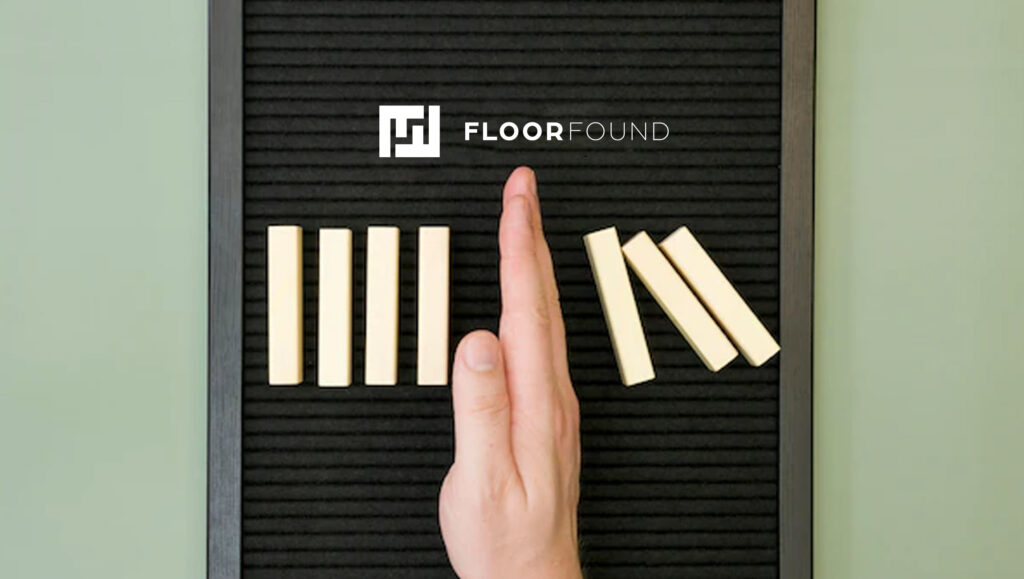New FloorFound research finds that value is top of mind for all consumers – including the most affluent – as resale expands beyond apparel
Consumer demand for secondhand and returned items is exploding amid inflation coupled with economic uncertainty. Research shows that the recommerce market grew twice as fast as the wider retail market in 2021 and is expected to reach $289 billion by 2027. And it isn’t just starving students and apparel brands who are on board with the trend. A new study reveals that affluent consumers are leading the recommerce revolution, driven by dual concern for value and the environment, and that demand for resale goes far beyond used clothing.
FloorFound announced the results of a new consumer study that illuminates consumer preferences and sentiment around resale items, including furniture, appliances, mattresses, and more. The study surveyed more than 1,000 consumers across the U.S. to pick out the trends and themes that will define the resale experience for oversized items this year and beyond.
Read More: SalesTechStar Interview with Gary Stonell, SVP of Sales and Operations at Opterus
Key findings include:
Consumers shop ‘resale first’ for large items
- Nine in 10 Americans (89%) will look for lightly used or resale options before purchasing new furniture. Resale includes consigned, thrift, trade-in, refurbished, and open box/returned items.
- Survey respondents point to worn-out couches (39%), end or coffee table (18%), and living room chairs (16%) as the items they most need to replace in their living space.
- Shoppers who buy resale are hooked: 97% of respondents who have bought resale in the past look for used furniture before buying new items.
Value is top of mind as shoppers grapple with inflation
- Saving money is the top reason to buy lightly used or resale furniture, cited by 73% of survey respondents.
- Additional incentives for choosing resale include “find unique items that aren’t widely available” (39%) and “support sustainability / reduce waste” (38%).
- Value is even more important to resale shoppers who plan to buy large items in the next 6 months, cited by 89% of these respondents — 16 percentage points higher than overall.
Read More: The Team Sport Approach: 3 Keys to Fostering Sales and Marketing Alignment for Revenue Growth
Affluent shoppers lead the way, with sustainability as a strong motivator
- While resale resonates with consumers at every income level, affluent shoppers making more than $175,000 a year are leading the charge. Nearly 9 in 10 of these affluent shoppers (86%) have previously bought a resale item — 14 percentage points higher than the survey average.
- These high-income shoppers choose value first with everyone else but stand apart when it comes to environmental impact. Nearly half (44%) cite sustainability as a reason to buy resale — 6 percentage points higher than the survey average.
- Nearly all affluent earners shop resale for furniture first (95%) — 6 percentage points higher than the survey average.
Consumers prefer and choose brands that offer recommerce programs
- Two in 3 (67%) shoppers are more likely to buy from a brand or retailer that offers resale.
- This rises to 76% for high income shoppers who overwhelmingly choose retailers with earth-friendly practices like resale.
- Across the board, shoppers (79%) expect the same resale experience for shopping, delivery, and customer support as when they buy a new item.
“Consumer demand for resale is a bright spot for retailers facing economic headwinds,” said Chris Richter, CEO of FloorFound. “Shoppers are looking to purchase resale instead of new, and we’ve seen that shift reflected in the 4x growth in consumer spending on recommerce items from brands leveraging FloorFound in the last year alone. But to stand out and succeed with recommerce, each retailer will need to develop a program that is uniquely suited to their business and clientele. FloorFound provides unparalleled expertise, technology, and a dedicated nationwide network of Recommerce Processing Centers to help retailers deliver the recommerce programs that shoppers overwhelmingly want and love.”






















